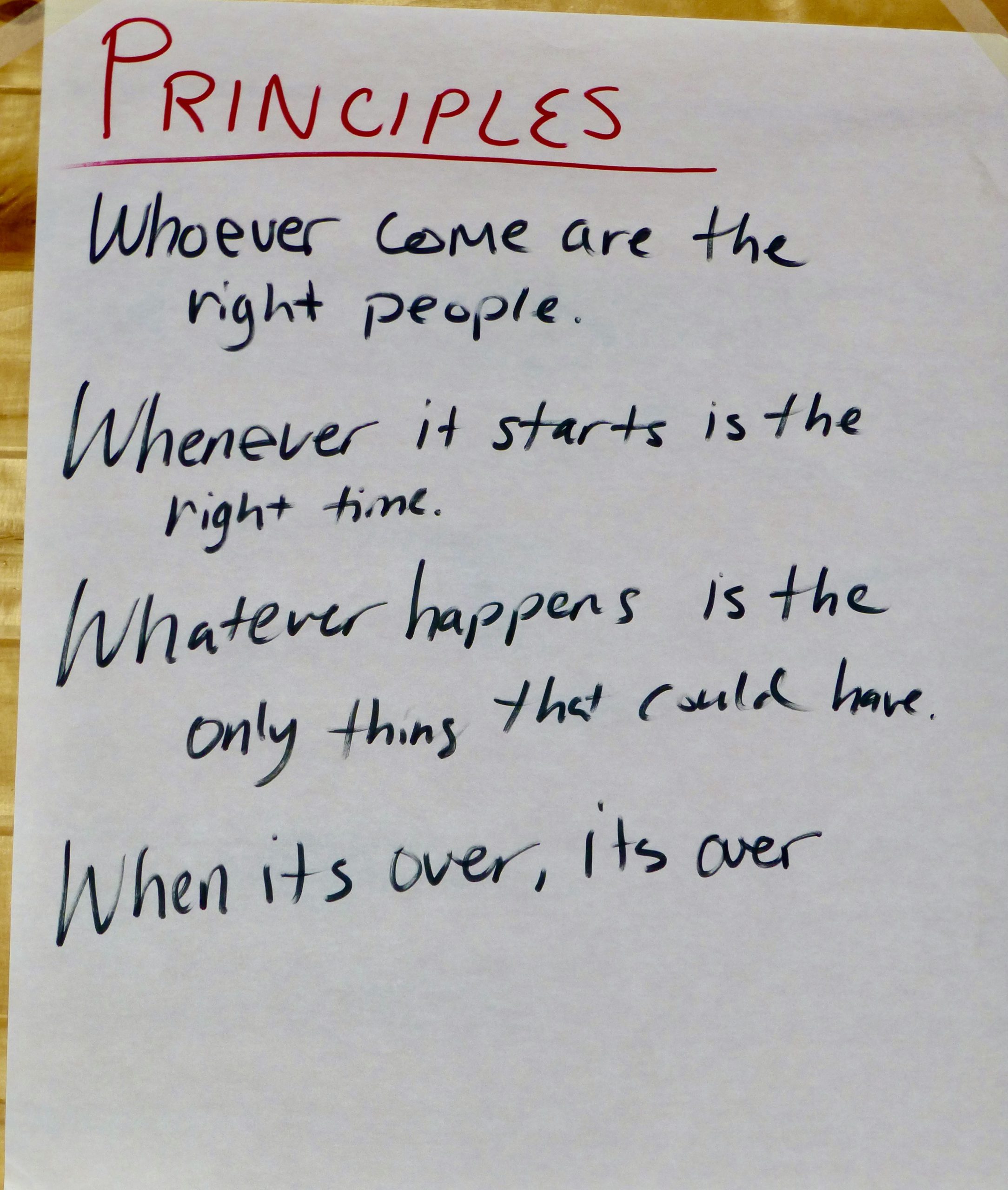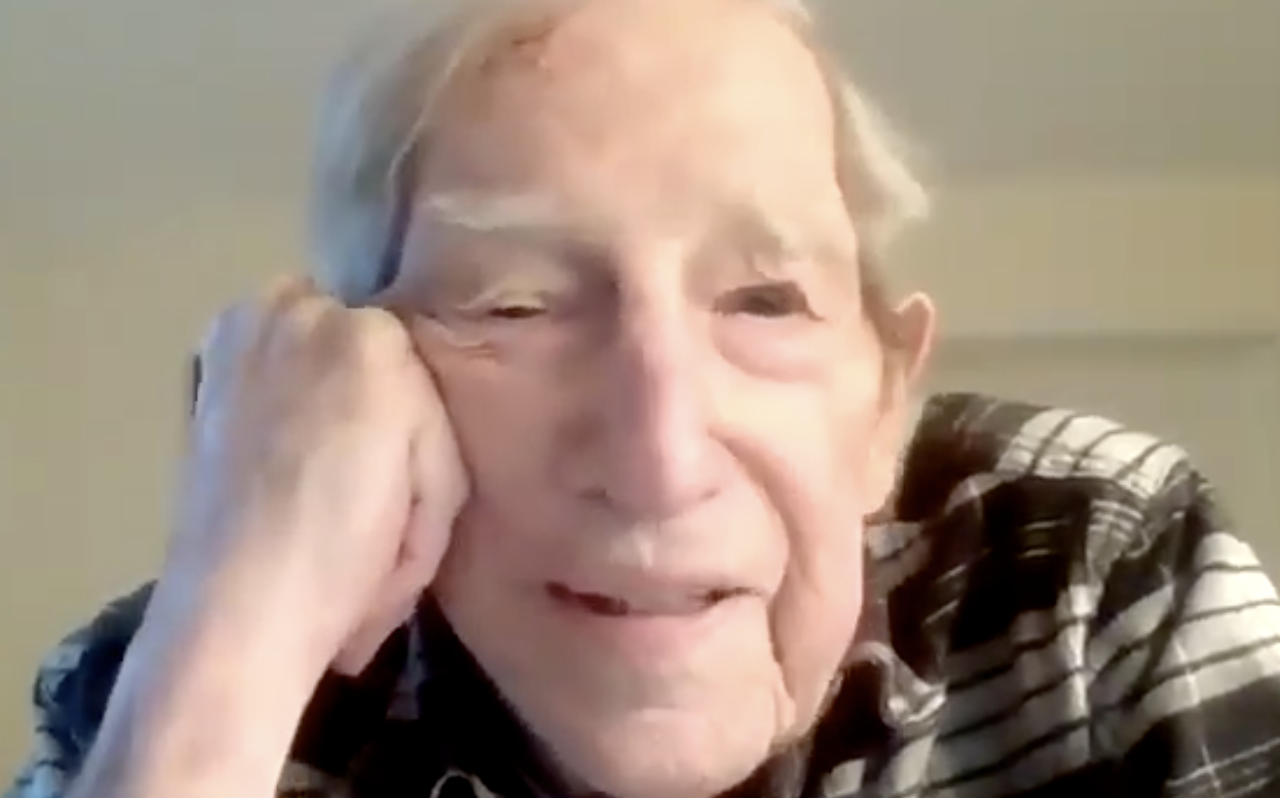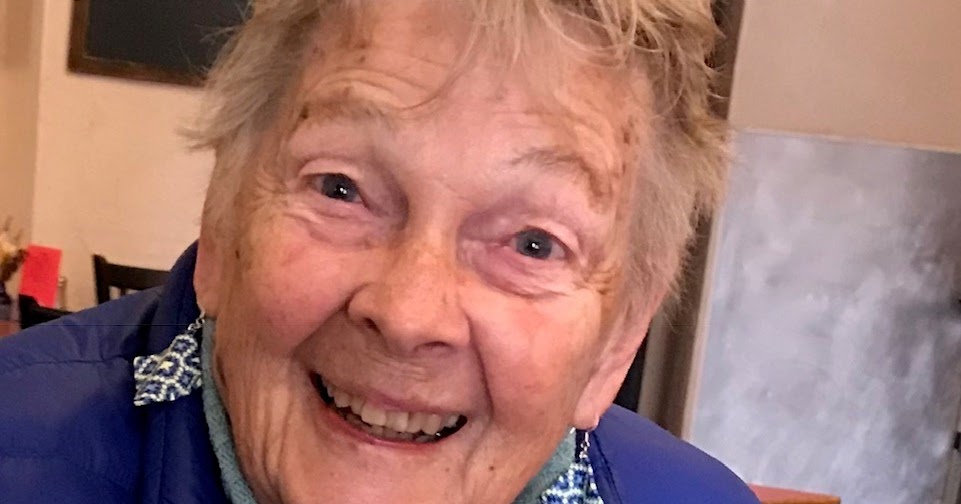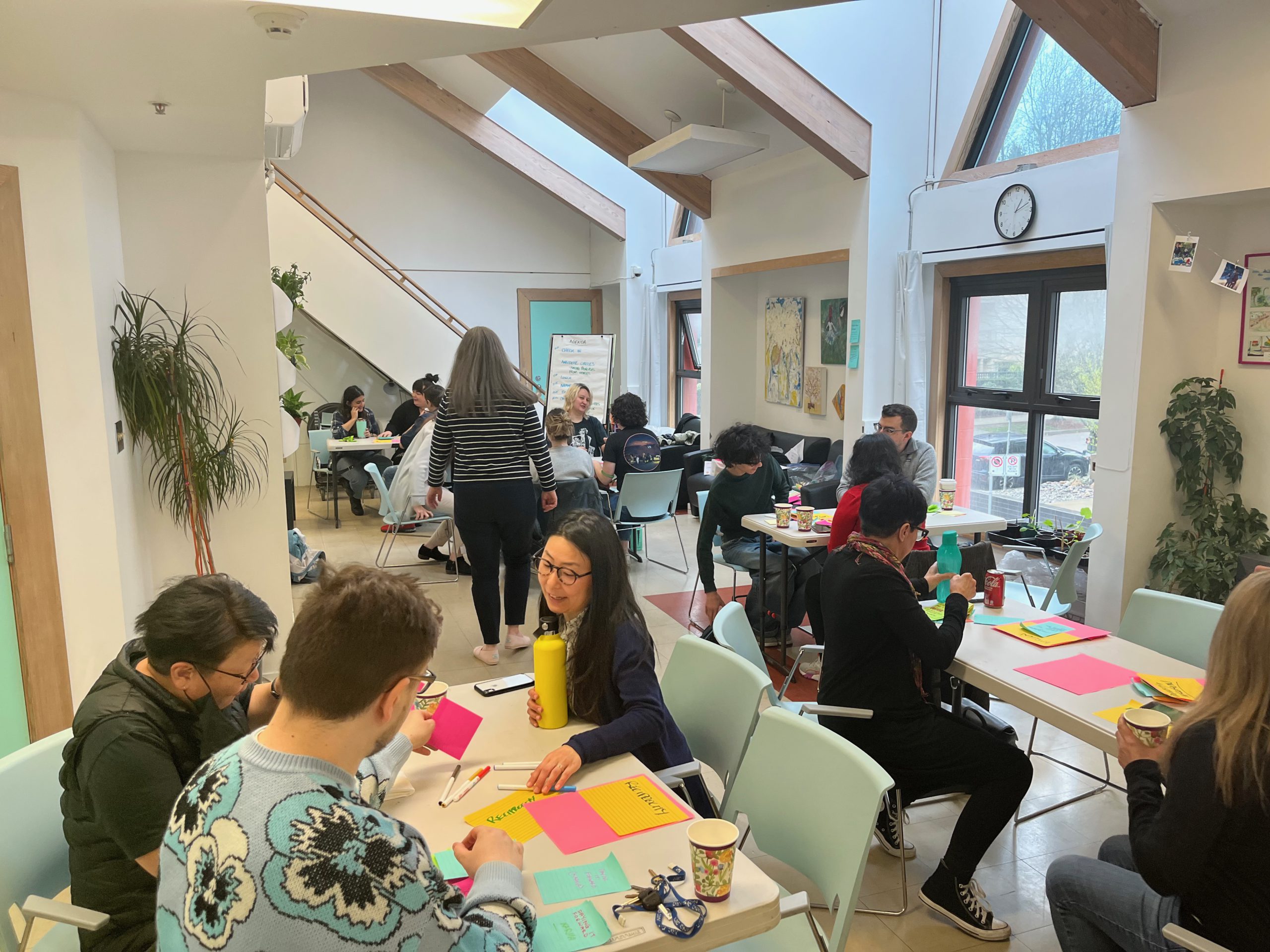
One of the hundreds of Open Space Technology Principles posters I have used in my time, this one from an Art of Hosting training in Minnesota in 2012, and designed by a team member. NOTE: I edited the title of this to make it clear that I’m not calling Harrison a “shaman,” but rather trying to correct a meme that has been going around which has appropriated his work. There is a post going around on the internet called “The Four Laws of the Shaman” or the “Four Laws of Spirituality.” The four laws are ascribed to some unknown shaman …

In this video, Harrison Owen discusses the chaos that is disrupting the order we take for granted and begins to create a new order and a different world. Harrison has been saying much the same thing for his entire career, starting with his dissertation on Aramaic and associated mythologies and cosmologies. He has been a long-time student of the dance of chaos and order, and his development of Open Space Technology came from this lifelong inquiry. i encountered Open Space first through an event that was hosted by Anne Stadler and Angeles Arien in 1995, and I met Harrison for …

The first time I ever experienced Open Space Technology was at the International Association of Public Participation Practitioners in Whistler, BC, Canada in 1995. It changed my life, to be hosted by a small team of beautiful facilitators who took a standard conference and opened space for the 400 of us to spend a day in deep practice, conversation, and community together. The team was Anne Stadler, Angeles Arrien and Chris Carter. What an introduction to Open Space. I can still remember Anne lighting a candle and placing it at the centre of a huge concentric swirl of chairs. …
An interesting rabbit hole was opened for me thanks to Tim O’Reilly’s cheeky claim that the German naturalist Alexander von Humboldt created the “unconference” in 1828. Through a link on the OSLIST provided by Rolf Schneidereit I’ve just read Humboldt’s opening address at the “Meeting of German Naturalists and Physicians” held over several days and several locations in Berlin during September of 1878. The invitation was to break down barriers between scientists from multiple disciplines to explore diverging opinions and ideas. As Harrison Owen did a century later when reflecting on his development of Open Space Technology, Humboldt drew his …

A few months ago, I was immersed in teaching complexity within the framework of the Art of Participatory Leadership program (AoPL). Essentially, AoPL is the application of the Art of Hosting within leadership contexts, extending beyond traditional facilitation and hosting scenarios. With a strong emphasis on personal practice and the use of complexity tools, AoPL encourages a deeper exploration of the connections between the Four Fold Practice, complexity, and dialogic containers – topics I’d previously addressed in my chapter for the book ‘Dialogic Organizational Development‘. My recent revisit to these subjects has sparked fresh insights. In one of these sessions, …

